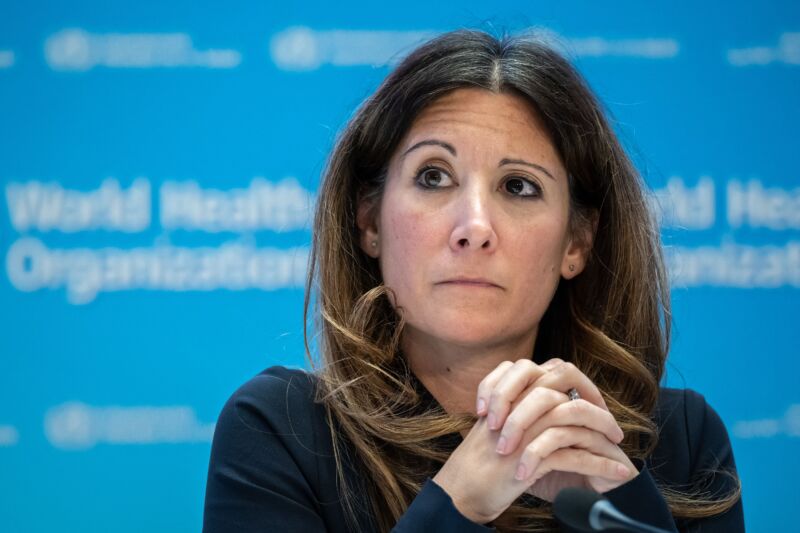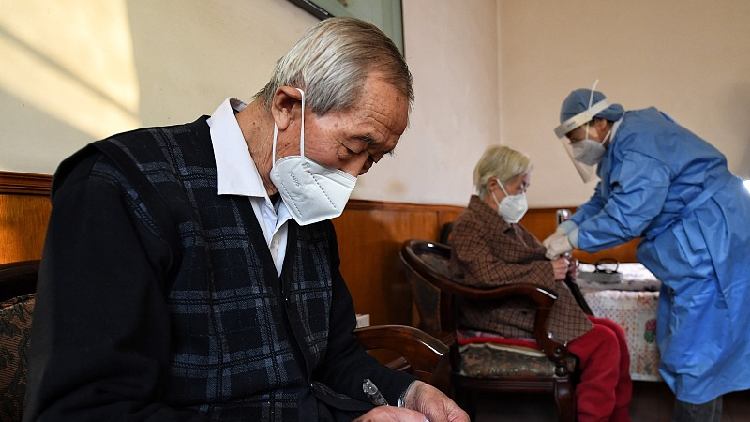WHO “deeply frustrated” by lack of US transparency on COVID origin data – Ars Technica


While the World Health Organization says it’s continuing to urge China to share data and cooperate with investigations into the origins of SARS-CoV-2, the United Nations’ health agency is calling out another country for lack of transparency—the United States.
WHO officials on Friday said that the US has not shared reports or data from federal agencies that have assessed how the COVID-19 pandemic began. That includes the latest report by the Department of Energy, which determined with “low confidence” that the pandemic likely began due to a laboratory accident.
“As of right now, we don’t have access to those reports or the data that is underlying how those reports were generated,” Maria Van Kerkhove, WHO’s technical lead on COVID-19, said in a press briefing Friday. “Again, we reiterate, that any agency that has information on this, it remains vital that that information is shared so that scientific debate, that this discussion, can move forward. Without that, we are not able to move forward in our understanding.”
The DOE’s “low confidence” conclusion has renewed a fiery partisan debate in the US over the pandemic’s origins, with Republican lawmakers pouncing on the opportunity to start new congressional probes and criticize the WHO and China.
This week, Republican Sens. Marsha Blackburn (Tenn.) and Ron Johnson (Wis.) used the DOE’s unreleased report as a justification to impose new transparency rules on the WHO. “The recent news about the lab leak theory only underscores the extent to which Communist China influences the World Health Organization,” Blackburn wrote on Twitter Wednesday.
Meanwhile, Sen. Roger Marshall (R-Kan.), who has argued in favor of the “lab leak” hypothesis, told The Washington Post the assessment “gives us momentum to expose the true origins of COVID. … As a physician myself, a biochemistry major, I think that there’s just no way this virus could have come from nature. It’s just too perfect.”
Unsettled science
The US intelligence community has unanimously agreed that SARS-CoV-2 was not developed as a biological weapon, and most agencies have also concluded that the virus was likely not genetically engineered, contradicting Marshall’s suggestion. Virologists and genetics experts also largely agree that SARS-CoV-2 was not genetically engineered.
The DOE’s “low confidence” assessment also doesn’t lend the investigations the “momentum” that some lawmakers seem to suggest. The US intelligence community’s standards for confidence in assessments, laid out in the 2007 National Intelligence Estimate (NIE 2007) Iran: Nuclear Intentions and Capabilities, explained that a “low confidence” assessment:
generally means that the information’s credibility and/or plausibility is questionable, or that the information is too fragmented or poorly corroborated to make solid analytic inferences, or that we have significant concerns or problems with the sources.
Even if such an assessment was weightier, the DOE’s lean toward the lab leak hypothesis is still a minority view within the US intelligence community. Of nine intelligence community entities that have reviewed SARS-CoV-2 origin data, only two—the DOE and the FBI—have tilted toward a lab leak. Five favor the hypothesis of a natural “spillover” event from wild animals (four agencies and the National Intelligence Council), while the remaining two entities say there is not enough data to sway opinions toward either hypothesis.
Virologists and infectious disease experts, meanwhile, continue to note that the limited available data so far supports the spillover hypothesis, albeit not conclusively. Two studies published side by side last summer in the journal Science suggested that two lineages of SARS-CoV-2 jumped to humans on two separate occasions at the start of the pandemic in Wuhan and that most cases centered around an area of a Wuhan market with high concentrations of SARS-CoV-2-positive environmental samples and wild animals, many of which can be infected with SARS-CoV-2.
But, without knowing what data the DOE and FBI used for their low-confidence inclinations toward a lab-based origin, researchers and WHO officials are unsure how the assessments fit in with the publicly available scientific information collected so far.
“Deeply frustrated”
“As we have said before,” WHO Director-General Dr. Tedros Adhanom Ghebreyesus said Friday, “if any country has information about the origins of the pandemic, it is essential for that information to be shared with WHO and the international scientific community—not so as to apportion blame, but to advance our understanding of how this pandemic started, so we can prevent, prepare for, and respond to future epidemics and pandemics.”
Tedros also went on the defense amid the renewed bitter debate, arguing that WHO is doing what it can to encourage China to cooperate with studies on the pandemic’s origins and that it has not given up on the matter, despite China’s clear opposition and lack of transparency.
“I wish to be very clear that WHO has not abandoned any plans to identify the origins of the COVID-19 pandemic, contrary to recent media reports and comments by politicians,” he said, adding that “all hypotheses on the origins of the virus remain on the table.”
He also said that the agency is continuing to push China to share data and conduct the numerous studies WHO advisory groups have outlined as necessary to understand the pandemic’s origins. “To that effect, I have written to, and spoken with, high-level Chinese leaders on multiple occasions, as recently as just a few weeks ago.”
Van Kerkhove, meanwhile, took personal offense to the politicization and lack of transparency from the US. On Thursday, she wrote on Twitter that, as an American herself, the Republican accusations against the WHO’s efforts are “deeply hurtful and inaccurate.” She added that she’s also “deeply frustrated” with the lack of transparency.
In the press briefing Friday, she emphasized that “any country, any agency, any institution, any research group that has further information about the origins of SARS-CoV-2 needs to share that information with the international community, with WHO, with SAGO, [WHO’s Scientific Advisory Group for the Origins on Novel Pathogens], so that we can move this discussion further along in its scientific space.”



